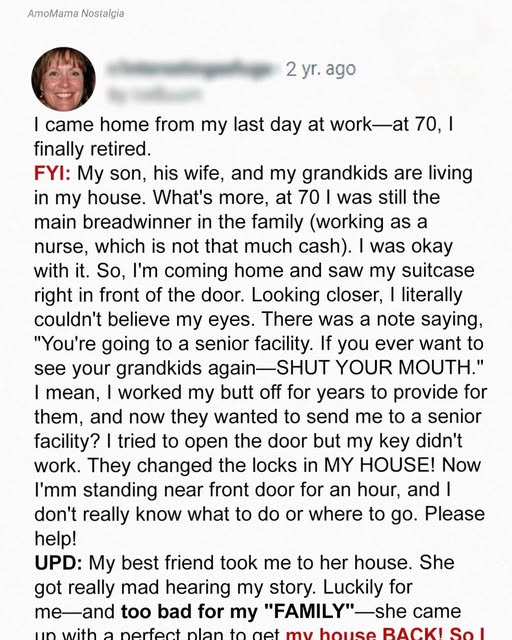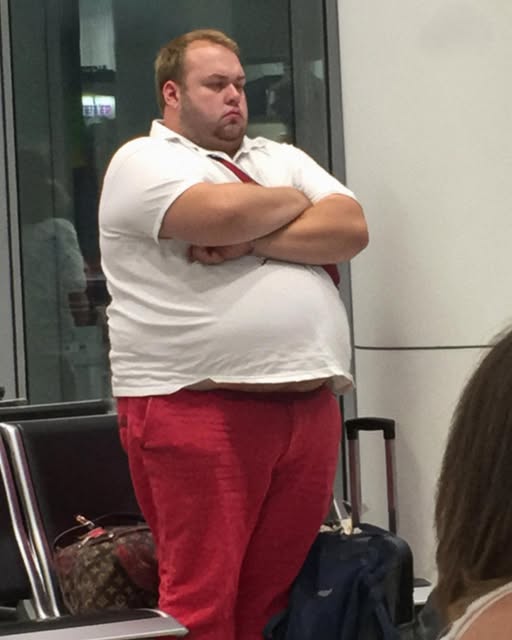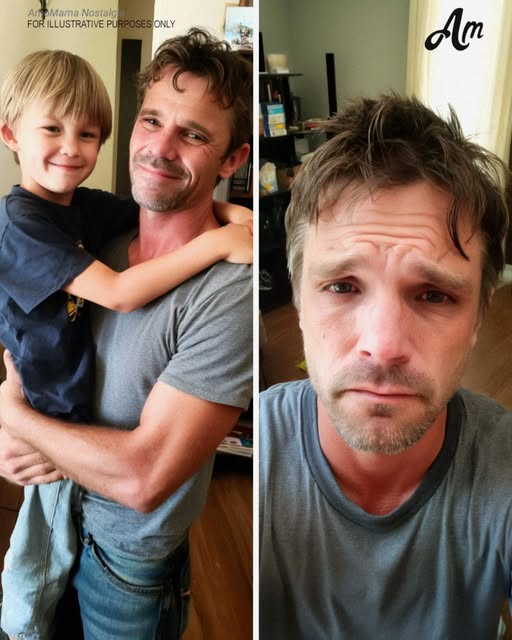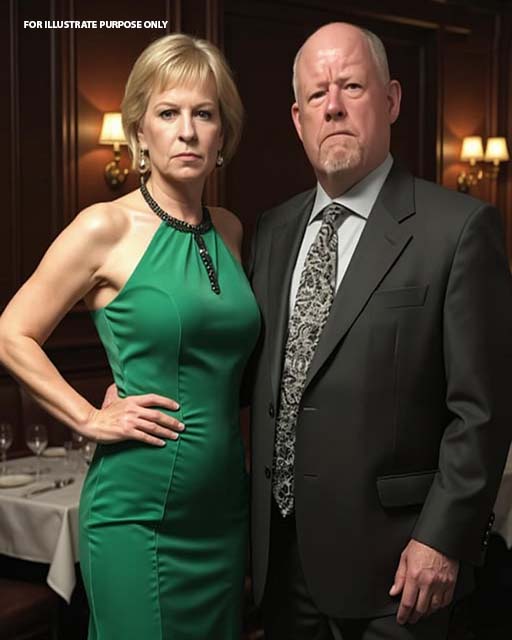I retired at 70 after nearly four decades at the clinic, picked up a little bakery cake with blue frosting roses, and drove home grinning like a fool. I imagined my son Thomas, his wife Delia, and the grandkids singing off-key while I pretended to blow out invisible candles.
Instead, my suitcases were lined up on the porch like stray dogs.
The locks had been changed. A sticky note was slapped to the top case in Delia’s neat little script: You’ve moved to a senior facility by choice. Don’t make a scene. If you want to see the kids again, keep quiet.
My hands shook so hard the cake slid in its box. For a full minute I stood there listening to the house I paid off breathe without me.
Then I crossed the street to Bonnie’s.
Bonnie, my best friend for 40 years, opened the door before I knocked. She took one look at my face, parked me at her kitchen table, poured tea, and said, “We’re going to fix this.”
From her front window you can see my place plain as a postcard. We were still on our first cups when our gardener, Gary, pulled up—midweek, which he never does. Moments later Delia opened my front door in a dress that screamed not-for-grocery-shopping and let him in like he was expected.
Bonnie raised an eyebrow. “Want to get creative?”
My grandson once gave me a tiny pet camera—clips to a collar, records video and audio. Bonnie’s cat, Mrs. Pickles, is a butterball with no shame and a talent for door-darting. Ten minutes later, after some laser-pointer misdirection and a wedge of ham, Mrs. Pickles trotted up my walk wearing her new accessory.
We watched the feed on Bonnie’s tablet. My kitchen. My counters. Delia’s voice, bright and mean: “I told him she chose a senior place. Can you believe it? He bought it. We’ve got the house to ourselves.”
Gary laughed. “How long you think he’ll stay blind?”
“As long as I want.”
We saved every second.
When Thomas got back that night, I met him in my backyard. Bonnie had set up her camping projector and a white sheet between two apple trees. The evening smelled like cut grass and smoke from someone’s grill. Thomas hugged me hard, started to ask a thousand questions, and then the video began.
There was Delia in my kitchen, leaning into Gary’s shoulder. There was her voice, clear as church bells. There was the note—in my hand now, then up on the screen, the same curves and loops in the same ink.
Thomas didn’t yell. His face went very still, a look I remember from when he was little and trying not to cry after falling off his bike.
He went inside. We heard drawers open, a suitcase thump, the small domestic sounds of a life being unthreaded. Delia came out with a duffel and a stare that slid right past me. Thomas followed with his jaw set.
“Pack the rest tomorrow,” he said, voice low. “The kids stay.”
She didn’t argue. She didn’t apologize. She just walked to her car and drove away.
In the quiet that followed, Thomas stood on the lawn and rubbed his eyes. “I should’ve seen it,” he said. “I didn’t want to.”
“We both missed it,” I told him. “But I’m not about to disappear quietly.”
Bonnie clapped her hands. “Good. Now let’s go get those chess champions and bake a pie big enough to feed an army.”
We piled into her station wagon like teenagers on a caper. Fifteen minutes later the grandkids were in my kitchen helping peel apples, flour dust in their hair, Mrs. Pickles sprawled under the table like a furry doorstop, the house loud again in the best way.
Standing there, rolling out crust on my own counter, I realized something: retirement just means I left the clinic. It doesn’t mean I left my life. Delia tried to write me out of my own story. Instead, we hit play on the truth and took my place back.
I may be retired, but I am far from finished.




